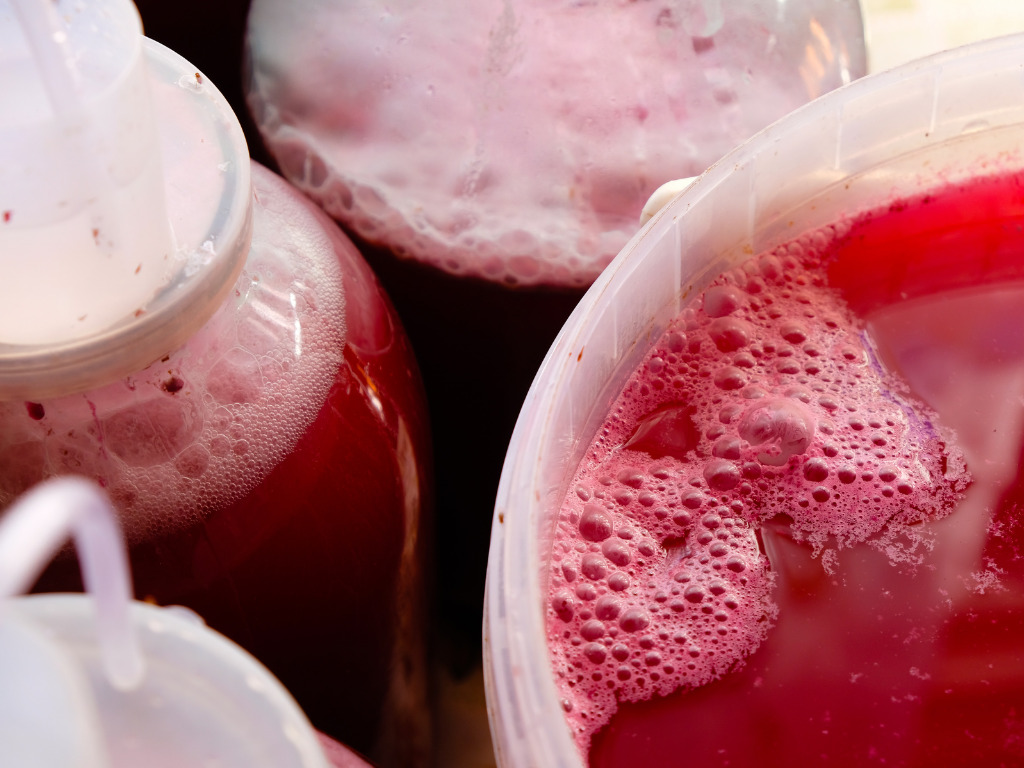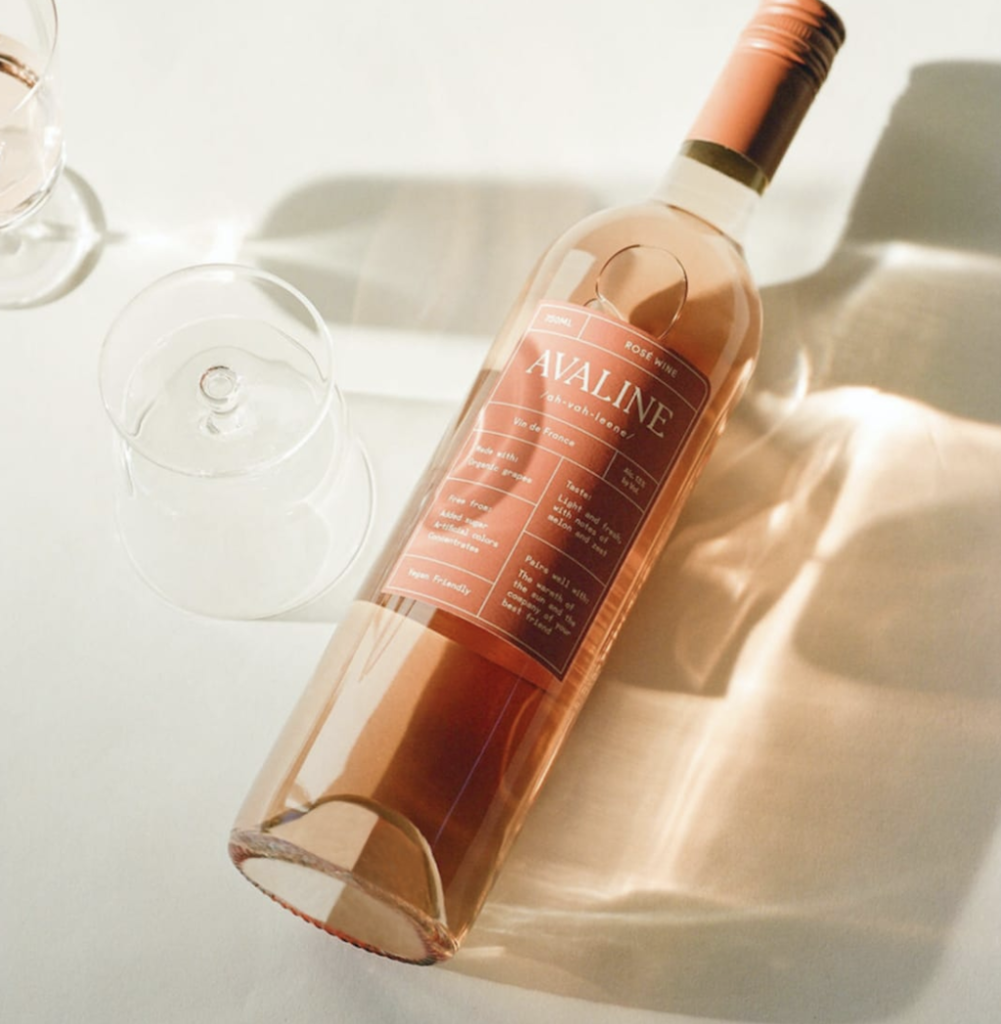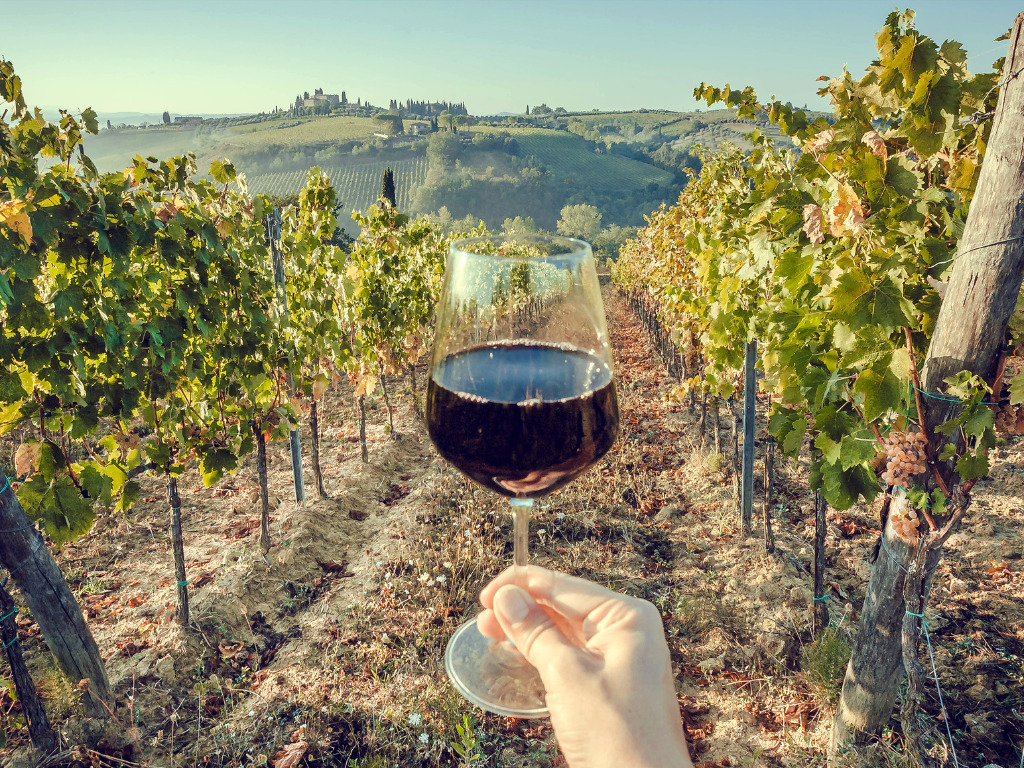5 Mins Read
What is vegan wine, and why isn’t all wine vegan? How is it made, and how many wines are vegan? Do people actually want it? We answer all these questions and more.
It may seem silly, but if you’re vegan, you may need to ask some questions about that glass of wine you’re sipping. It’s a well-documented topic, and for good reason. A survey by UK online retailer Virgin Wines earlier this year found that 39% of Brits didn’t know that all wines are not vegan.
But what really is it that makes many wines not suitable for vegans, and do people want such wines? Here’s all you need to know.
What is vegan wine, and how is it made?

Don’t worry, grapes are vegan – there is no twisted tale about grape production. It’s not the fruit that’s the issue – it’s the process of turning it into wine.
Traditionally, many winemakers use animal byproducts during the clarifying process, to get rid of any sediment filtration couldn’t remove (such as grape skins, proteins, yeast and undesirable flavours). These include egg whites, blood and bone marrow, fish oil, chitin, gelatin, casein and isinglass. While none of these ingredients make it into the wine, of course, the resulting alcohol is still not vegan as the production process involves animal products.
So how can you filter wine in a vegan-friendly manner? There are several fining agents that help winemakers clarify the alcohol without an animal product. The most common is bentonite clay, while other substances include kaolin, limestone, silica gel, seaweed and even plant casein. Some companies, like Bordeaux-based Laffort and California’s Enartis, have also introduced vegetable-based fining products.
The other way to produce wine that is vegan-friendly is to bypass the filtration process altogether. Some winemakers believe clarifying the liquid removes desirable flavours and aromas, and so let the sediments settle naturally (though this is a time-consuming process).
Another filtration technique is called racking, where wine is transferred from one barrel to another during the fermentation process to partially remove any unwanted particles.
Apart from fining, other elements that could make wine non-vegan are bottle sealing (which can be done via beeswax) and the cork (which can use milk-based glues). So, if you were to define vegan wine, it would be one that hasn’t been filtered or doesn’t come into contact with any animal products during both the production and packaging stages.
How to check if wine is vegan?

While some manufacturers helpfully tell you if their wine is vegan why the product labels, there are no labelling regulations requiring winemakers to do so, which makes it hard to tell if a wine is vegan or not.
There is no dedicated certification label that would ensure the wine you’re drinking is vegan-friendly. But Miami-based BeVeg is an ISO-accredited body that deals with vegan alcohol certifications, including beer and wine. The organisation says that alcohol labelling laws in the US, which are regulated by the Alcohol and Tobacco Tax and Trade Bureau (TTB), are very deficient, as there are no requirements for the disclosure of ingredients or production processes.
According to the TTB, there are nearly 70 ingredients that can be added to wine without disclosure (which includes fining agents) on product labels. In fact, there’s a lot of red tape to even mandate the labelling of allergens. The TTB allows voluntary labelling of allergens in alcohol and, in 2006, proposed rules to make it mandatory for manufacturers to do so. But it has been a long-drawn process – only last year did the TTB confirm its decision to issue the ruling.
So while there’s no way to check via the product label if a wine (that doesn’t have a specific ‘vegan’ claim) is vegan-friendly, it’s not an entirely lost cause. Most natural wines, which eschew fertilisers and pesticides, use few to no additives and are essentially unadulterated and unfiltered, are vegan.
Meanwhile, BeVeg’s BevVeg! app has a database of over one million alcoholic drinks that tells you if a certain product is vegan or not – anything that is, can be bought through the app. Online guide Barnivore provides a similar service. It has over 5,400 vegan wines listed on the website, so all you need to do is search for the label, and voila! And to make things even easier, you can also shop from exclusively vegan websites like Vegan Wines.
How much wine is vegan, and is there consumer demand?

While there are no exact numbers about the percentage of wine that is vegan – an untenable prospect given the loose regulations over labelling – there are estimates that outline the movement’s popularity across different nations. In 2021, wine journalist James Suckling published a report rating 463 vegan wines. He found that France – home to global wine capital Bordeaux – was the origin of only four of all the wines on the list.
But other countries were rushing to meet consumer demand. Vineyards from Spain accounted for nearly one-third (148) of the vegan wines being rated, while Argentina (80) and Chile (65) made up another third. He added that the highest-quality vegan winemaking region could be Germany, which was the source of nine of the top 10 best vegan wines on his list.
A report by Transparency Market Research revealed that the organic wine market is set to reach $30B by 2030, aided by a “surge in demand for preservative-free, vegan-friendly, carbon-neutral, certified, and biodynamic organic wines”. An analyst from the research firm said: “The market growth can be primarily attributed to the soaring demand from health-conscious consumers, high demand for organic and natural products, focus on improving soil health, rise in the number of wine exhibitions, and growing vegan trends.:
And there is certainly a lot of demand. Virgin Wines reported a 51% rise in sales of vegan wines from 2019-21 in the UK, climbing from 1.1 million to 1.7 million bottles – despite its consumer poll finding that 28% of consumers would knowingly serve non-vegan wine to vegan guests at a dinner party. Overall, the survey found that 36% of Brits now choose to buy vegan wines, citing environmental (29%), animal welfare (30%) and health (25%) reasons.
Meanwhile, in 2021, vegan wine accounted for 2.2% of all wine sales in Italy, the world’s third-largest consumer of wine. But this followed a 24.8% rise in purchases from 2020-21. And meeting this demand (both in Italy and internationally) are vegan wine brands like Querciabella, Avaline, Tinto Amorio, Eva Fricke and Slimline Wine – to name just a few.
Vegan wine is undoubtedly on the rise. Let’s hope this sentence ages the same way.




